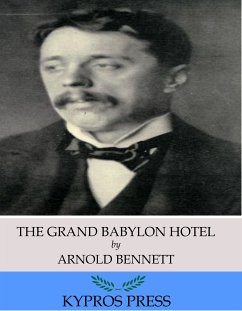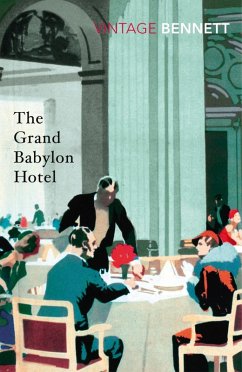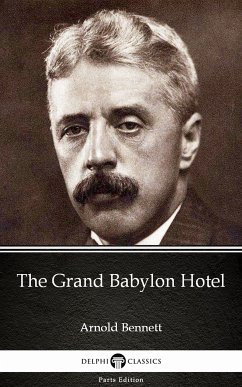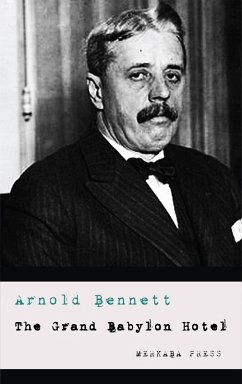
The Grand Babylon Hôtel (eBook, ePUB)

PAYBACK Punkte
1 °P sammeln!
The Grand Babylon Hotel is a novel by Arnold Bennett, published in January 1902, about the mysterious disappearance of a German prince. It originally appeared as a serial in the Golden Penny. The titular Grand Babylon was modelled on the Savoy Hotel which Bennett had much later also used as a model for his 1930 novel Imperial Palace. Arnold Bennett (27 May 1867 - 27 March 1931) was an English writer, best known for his novels set in the Five Towns which is fictitiously modeled on the pottery towns of Stoke-on-Trent in Staffordshire, where he was born. He wrote prolifically, producing novels, p...
The Grand Babylon Hotel is a novel by Arnold Bennett, published in January 1902, about the mysterious disappearance of a German prince. It originally appeared as a serial in the Golden Penny. The titular Grand Babylon was modelled on the Savoy Hotel which Bennett had much later also used as a model for his 1930 novel Imperial Palace. Arnold Bennett (27 May 1867 - 27 March 1931) was an English writer, best known for his novels set in the Five Towns which is fictitiously modeled on the pottery towns of Stoke-on-Trent in Staffordshire, where he was born. He wrote prolifically, producing novels, plays, essays, and journalism. Bennett's writing is characterized by detailed, realistic portrayals of everyday life and complex characters. His works are often considered as part of the realism movement in English literature.
Dieser Download kann aus rechtlichen Gründen nur mit Rechnungsadresse in A, B, BG, CY, CZ, D, DK, EW, E, FIN, F, GR, HR, H, IRL, I, LT, L, LR, M, NL, PL, P, R, S, SLO, SK ausgeliefert werden.













